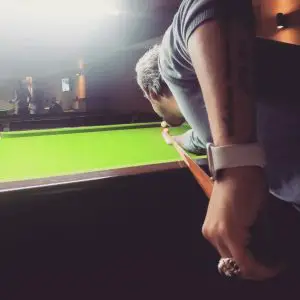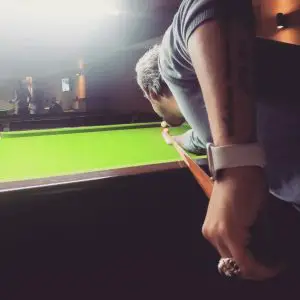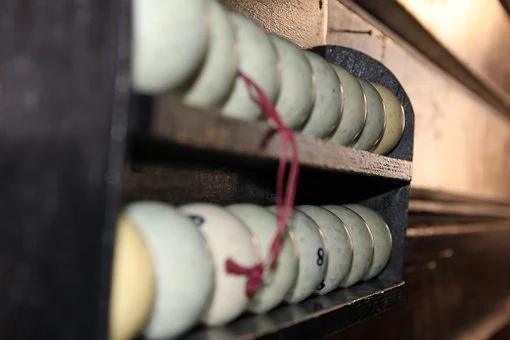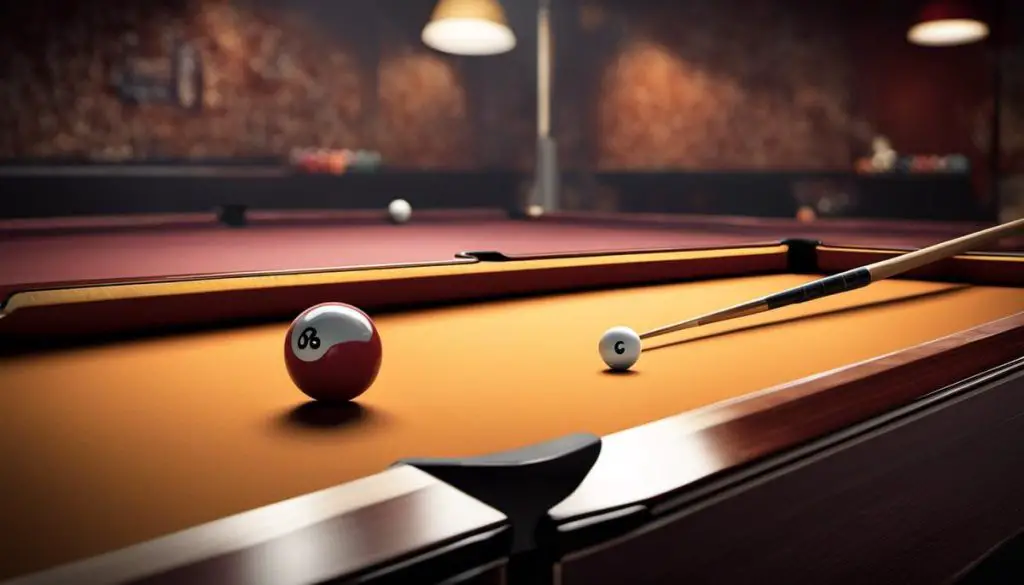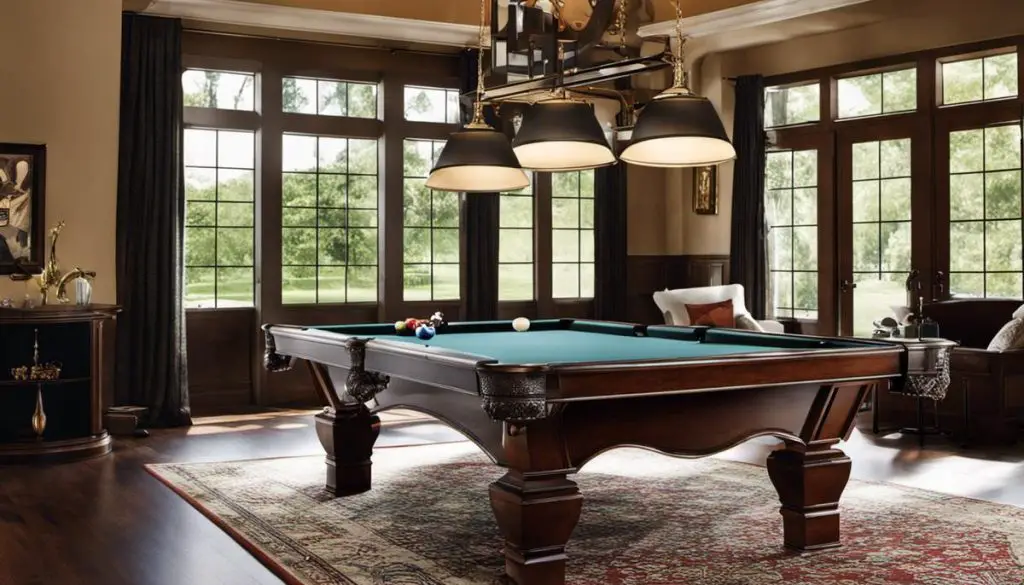What are pool sticks called? This is a question that a lot of people ask, and there is no one definitive answer to it. Depending on what part of the world you live in, they may be called different things. In this blog post, we will explore the different names for pool sticks around the world, as well as some of the history behind them.
Another interesting read: 3 Player Pool Games
Let’s get started!
What Are Pool Sticks Called?
As we mentioned before, pool sticks are called different things depending on where you are in the world. In America, they are most commonly referred to as pool cues. This is because the game of pool originated in America, and the name has stuck ever since. However, there are other names for pool cues around the world.
In Europe, they are often referred to as snooker cues. This is because the game of snooker originated in Europe, and the name has stuck ever since. However, there are other names for snooker cues around the world.
In Australia, they are most commonly referred to as pool cues. This is because the game of pool originated in America, and the name has stuck ever since. However, there are other names for pool cues around the world.
So, as you can see, there is no one definitive answer to the question of what pool sticks are called. It all depends on where you are in the world.
Another interesting read: The Snookball Rules
Now that we’ve answered the question of what pool sticks are called, let’s take a look at the most common types of pool sticks used by players across the globe.
6 Types Of Pool Sticks You Must Know!
There are many different types of pool sticks that you can choose from. Each type of stick has its own unique benefits and drawbacks. In this section of the blog post, we will be discussing the six most popular types of pool sticks.
Snooker Cues
The first type of pool stick is the snooker cue. These cues are generally made from hardwoods, such as ash or maple. The shafts of snooker cues are usually covered with a leather wrap.
The benefits of using a snooker cue are that they offer great control and accuracy. Snooker cues also have a very solid hit. The drawbacks of using a snooker cue are that they are not very forgiving and can be difficult to use for beginners.
American Pool Cues
The second type of pool stick is the American pool cue. The cues are longer, and the tips are significantly bigger than those on snooker or English cues. This is what distinguishes them from the English cues. The weight of an American pool cue is also different. They weigh between 18 and 21 ounces, which allows for more power behind your shots. The extra weight also makes it easier to control the cue when you are shooting.
The American pool cues have a bigger sweet spot, which is the area on the cue ball that will make contact with the cue stick. This makes it easier to hit the cue ball in the right spot, and it also makes it easier for the cue ball to travel in a straight line. The sweet spot is also bigger on American pool cues because of the size of the tips.
The extra weight and the bigger sweet spot make American pool cues the best choice for beginners. They are also the best choice for people who want to play pool in a more casual setting. If you are going to be playing in a tournament, or if you want to take your game to the next level, you will need to use a different type of cue.
English Cues
These are the most commonly used pool sticks in America. They are made of hard rock maple and have a natural lacquer finish. The tip is usually 8 or 10 mm in size, and the ferrule is usually metal. The weight of an English Cue can range from 18 to 21 ounces.
Moreover, the shaft of an English Cue is usually 29 inches long and has a taper. The taper allows for more control over the cue ball. A player can also choose to have a shorter shaft, which is 27 inches long.
Another interesting read: How To Identify Aramith Pool Balls
English Cues are one of the most versatile types of pool stick and can be used for all types of shots.
Fiberglass Pool Cues
Next, we have fiberglass pool cues. These are made with a fiberglass shaft that is covered with a nylon or PVC sleeve. They are very durable and will not warp or bend over time. They also have good shock absorbency, which means they are less likely to break when you hit the cue ball too hard. Fiberglass pool cues are a good choice for beginners and advanced players alike.
What makes it different from the rest of the bunch is that it’s not made of wood. If you are looking for a more durable option then this might be the right stick for you. Also, fiberglass pool cues are less likely to warp or bend over time. Lastly, they have good shock absorbency which means they can take more force than other materials. If you are a beginner or an advanced player, this type of pool cue is a good choice for you.
Wooden Pool Cues
Wooden pool cues are the most classic and traditional type of pool cues. They’re usually made from hardwoods like maple, which is why they’re often referred to as “maple sticks.” Maple is the most popular choice for wooden pool cues because it’s strong and durable. It’s also relatively lightweight, so it’s easy to control.
Wooden pool cues come in a variety of styles, from simple and straightforward to ornate and elaborate. You can also find them in different lengths, weights, and diameters. The most important thing to consider when choosing a wooden pool cue is the type of wood it’s made from. Different woods have different characteristics that will affect your game.
Hardwoods like maple are the best choice for pool cues because they’re strong and durable. They’re also relatively lightweight, so they’re easy to control. If you’re looking for a classic wooden pool cue, maple is the way to go.
When it comes to choosing a pool cue, the most important thing to consider is the type of wood it’s made from. Different woods have different characteristics that will affect your game. Hardwoods like maple are the best choice for pool cues because they’re strong and durable. They’re also relatively lightweight, so they’re easy to control. If you’re looking for a classic wooden pool cue, maple is the way to go.
Carbon Fiber Pool Cues
If you’re looking for a pool cue that will give you an edge over your opponents, then a carbon fiber pool cue is the way to go. Carbon fiber cues are made from high-strength fibers that are woven together to create a lightweight and extremely durable cue. Carbon fiber cues are also known for their excellent shock absorption, which means they can help you minimize cue ball deflection.
The benefit of a carbon fiber pool cue is that it provides a significant power boost over traditional wood cues. Carbon fiber cues are also more resistant to warping and damage, which means they will last longer. However, the downside of carbon fiber cues is that they tend to be pricy compared to traditional wood cues.
Another interesting read: How To Replace Pool Table Pockets
Carbon fiber pool cues will give you an edge over your opponents if you want the best pool cue money can buy.
Conclusion
Now that you know the different types of pool sticks, it’s time to put your knowledge into practice. Grab a friend and head to the nearest pool hall for some fun! Knowing the difference between these will help you choose the right stick for your game and give you a better chance at sinking those balls!
Another interesting read: How To Get Rid Of A Pool Table


